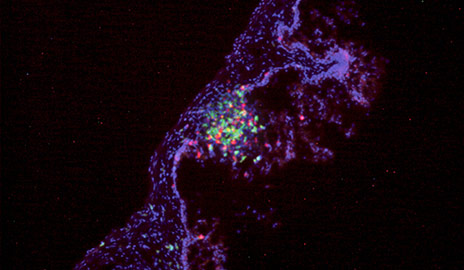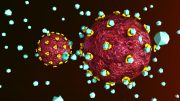
New research reveals how the immune system tackles superinfections, offering insights for potential vaccines against sexually transmitted diseases, including HIV. Credit: Yale University
New research from Yale University shows how the immune system combats superinfections, revealing a biological basis for new vaccines against sexually transmitted diseases and possibly HIV.
The immune system is great at making sure infections such as the herpes virus do not repeatedly infect a person, a condition known as a superinfection. Yet how the immune system combats superinfection is not well understood.
In the August 28 issue of the journal Science Express, Yale University researchers help explain the mystery. They found that a lymphocyte network helps retain a specific type of T cell in the tissue of the vaginas of mice that have previously encountered herpes infection; this, in turn, prevents infection by the herpes simplex virus.
The findings suggest a biological basis for new vaccines against sexually transmitted diseases, and possibly HIV, say the researchers, who note a similar approach might be applied to cancer vaccines as well.
“Now that we understand their behavior and structure, our goal is to enable these T cells to provide immediate protection against mucosal viral challenges,” said Akiko Iwasaki, professor of immunobiology and investigator for the Yale Cancer Center and Howard Hughes Medical Institute, who with Yale’s Norifumi Iijima co-authored the paper.
Existing vaccines against herpes boost circulating T cells throughout the body but have shown limited efficacy. Iwasaki has proposed that introducing topical treatments that “pull” T cells to into vulnerable tissue in addition to giving vaccines that “prime” the immune system might be a better way of combating viral infections.
The results of the new paper provide new information about how to “pull” specific T cell populations to these sites, she said.
Reference: “A local macrophage chemokine network sustains protective tissue-resident memory CD4 T cells” by Norifumi Iijima and Akiko Iwasaki, 28 Aug 2014, Science.
DOI: 10.1126/science.1257530









Be the first to comment on "How the Immune System Combats Superinfection"